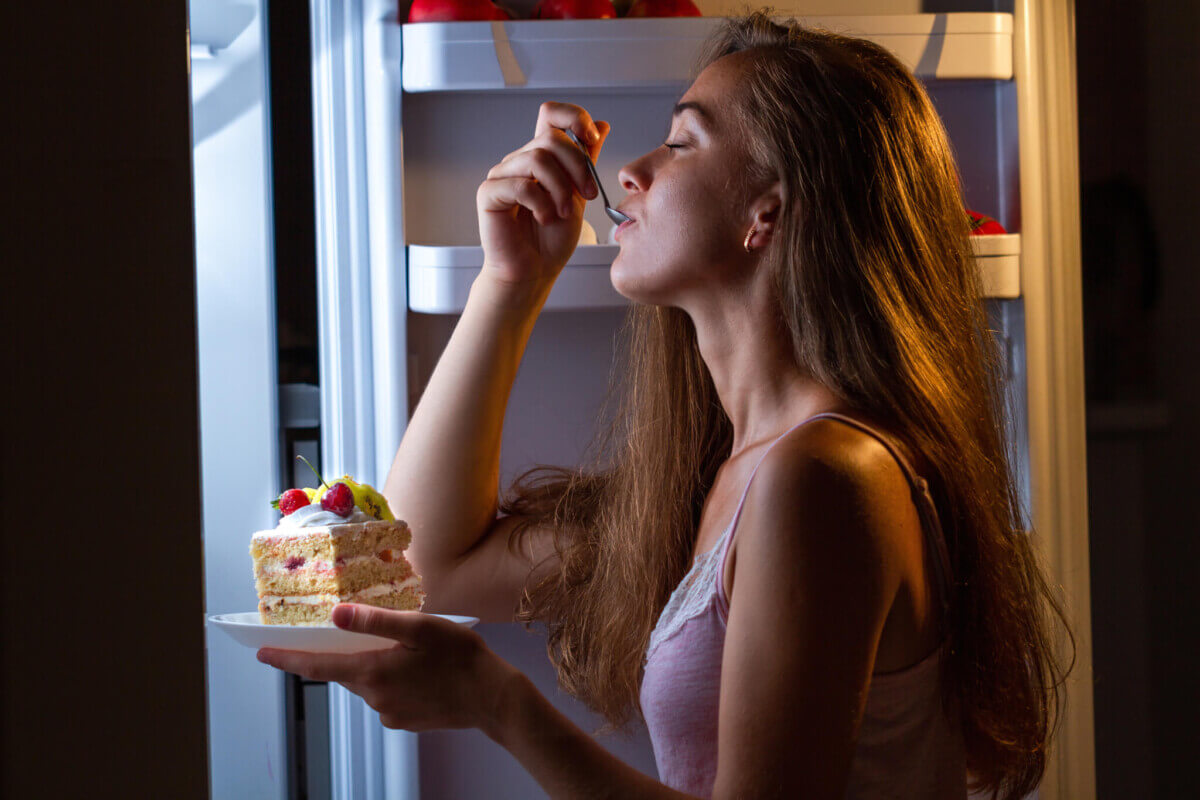
(© Goffkein - stock.adobe.com)
It’s been a common belief that it’s a bad idea to eat before bed, mostly because it’ll make you gain weight. The reality is that it isn’t that simple, and the thinking behind this theory is actually pretty controversial. Most nutrition and sleep experts agree that eating a full-sized meal right before bed isn’t ideal, but a light snack isn’t likely to cause any issues. As a dietitian, I recommend not eating at all or just keeping it to a light snack two to three hours before bed.
Why you shouldn’t have a big meal before bed
Life is busy; things happen, and sometimes you have to eat right before you go to bed. I wouldn’t get into the habit of this, though. Your circadian rhythm, which is your body’s internal 24-hour clock that helps you function during the day and sleep at night, can be easily disrupted by different things. One of these things is eating heavy meals at night.
Being in tune with your circadian rhythm allows your metabolism to function optimally. It’s also better for digestion to take place during the day when your body is moving, drinking water, and doing other basic things that help facilitate healthy eating. At night, while you’re sleeping, your body, including your digestive tract, can rest and recover.
What about snacks?
Eating something light before bed is fine for most people. However, if you’re going to snack, be sure to make the right choice. As the night falls, you’re more likely to make unhealthy food choices. You’re more likely to reach for the chips or crackers. If you have a sweet tooth, you’re more likely to want a cookie instead of an apple.
When you choose more processed carbs that quickly increase blood sugar levels, this can disrupt sleep quality and also make your body work harder to stabilize those blood sugar levels. If you snack before bed, try going for options like fruit and cheese so that the carbohydrates from the fruit are paired with fat and protein from the cheese, popcorn, or a handful of nuts. These snacks are much more likely to help keep your blood sugar levels stable throughout the night.

What if you have a habit of eating too much at night? It’s common for people to eat a lot at night for different reasons, and it can be a difficult habit to shake. If this sounds like you, try these tips:
Eat enough throughout the day
Eating too little throughout the day is one of the surest ways to set yourself up for possible overeating at night. It’s easy to go to sleep with an overstuffed stomach, wake up not being too hungry, so you don’t eat until noon, and then start the cycle all over again.
Try to eat three balanced meals per day that highlight protein, fiber, healthy fats, and carbohydrates. This balance helps keep blood sugar levels more stable, so you don’t feel ravenous around food at night.
Entertain yourself at night
Ever find yourself just walking around the kitchen and opening the fridge 15 times per night — not because you’re actually hungry, but because you’re bored? You’re not alone.
Late-night eating often happens because food is available, and it’s something to do while you’re watching TV or something else. Instead of engaging in mindless snacks, try listening to music, reading a book, or phoning a friend until you get tired.
Lower stress
Life is stressful, which is why eating a pint of ice cream at 10 p.m. might be something you do more often than you want. When we are stressed, we are more likely to reach for high-sugar and fat comfort foods. While we can’t always control the stress in our lives, we can do our best to control the response. Find things that help you relax before bed, like turning on your favorite TV shows, reading a book, or even doing some light meditation or stretching before bed.
Bottom Line
Eating before bed doesn’t mean you’re automatically going to gain weight. The types of foods you eat before bed are more important. Still, sleep is a period of rest for you and recovery for your body’s processes. As such, it’s ideal to not eat or at least limit your eating to a light snack within a couple of hours before bed so your body can dedicate that time to those recovery processes rather than digestion. If you do snack before bed, it’s recommended to stick to healthier choices rather than highly processed foods.










